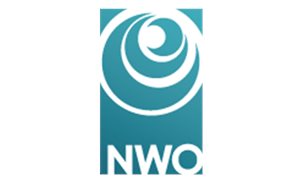7 February 2019
With the TOP grant, Benno Roozendaal and his colleagues will investigate whether the stress hormone cortisol can be used to predict the success of exposure therapy. Normally cortisol is released when someone ends up in a stressful situation. The hormone plays a role in the ability to respond well in the situation at hand.
“If so, it becomes interesting to investigate whether cortisol can cause anxiety reduction in patients with PTSD. And even more specifically: whether that has an effect especially in patients with such a disturbed, weaker cortisol response.”
 Exposure therapy is effective in about half of the patients with post-traumatic stress syndrome (PTSD). This percentage may possibly increase due to the targeted use of cortisol in the right patients. Benno Roozendaal received a TOP subsidy from ZonMw to investigate this. For this study he will collaborate with Erno Hermans, Robbert-Jan Verkes and Gert-Jan Hendriks.
Exposure therapy is effective in about half of the patients with post-traumatic stress syndrome (PTSD). This percentage may possibly increase due to the targeted use of cortisol in the right patients. Benno Roozendaal received a TOP subsidy from ZonMw to investigate this. For this study he will collaborate with Erno Hermans, Robbert-Jan Verkes and Gert-Jan Hendriks.
Cortisol
Exposure therapy is one of the most common and effective treatments for PTSD. Nevertheless, it only works in about half of the patients. It’s unknown why it doesn’t work for others.With the TOP grant, Benno Roozendaal and his colleagues will investigate whether the stress hormone cortisol can be used to predict the success of exposure therapy. Normally cortisol is released when someone ends up in a stressful situation. The hormone plays a role in the ability to respond well in the situation at hand.
Fear reduction
Roozendaal: "In some patients we see a weak cortisol response, especially in patients who have experienced traumatic experiences in early childhood. Apparently something is wrong with their stress response. We are going to investigate that now, first of all in rats. We examine whether a weakened cortisol response in these animals indeed leads to a weaker reduction of the anxiety reaction.”“If so, it becomes interesting to investigate whether cortisol can cause anxiety reduction in patients with PTSD. And even more specifically: whether that has an effect especially in patients with such a disturbed, weaker cortisol response.”
Related news items

Three Vici grants for Radboudumc researchers
20 February 2020 Christian Beckmann, Sander Leeuwenburgh and Annette Schenck each receive a 1.5 million euro Vici research grant from NWO. go to page
Judith Homberg appointed Professor of Translational Neuroscience
20 March 2019 Judith Homberg has been appointed Professor of Tanslational Neuroscience effective 1 February 2019. go to page
Ultrahigh-resolution MRI reveals structural brain differences in serotonin transporter knockout rats after sucrose and cocaine self-administration
20 February 2019 In Addiction Biology Peter Karel and Judith Homberg showed that rats lacking the serotonin transporter show increased cocaine, but unaltered sucrose, self-administration. go to page
MRI scans reveal brain profile of concussions Over fifty Canadian rugby players followed
2 January 2019 Researchers from Radboudumc and Western University Canada performed MRI scans in more than fifty female rugby players. They show a deviant pattern in the brain after an acute concussion. go to page
3 DCMN researchers among most cited scientists
10 December 2018 Christian Beckmann, Jan Buitelaar and Barbara Franke made it to this year’s list of highly cited researchers. Scientists in this list are selected for their exceptional research performance and are regarded to have had a major impact on fellow scientists. go to page